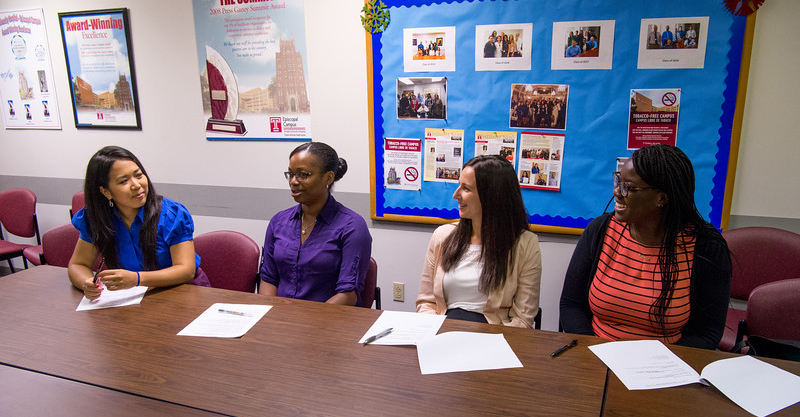
Residents may elect to join these tracks during their general training as a means of gaining earlier and more focused exposure in these areas based on career interests.
Child and Adolescent Psychiatry
“Participating in the child track gave me earlier and more robust exposure to Child and Adolescent Psychiatry, which helped solidify my choice in the field. During fellowship interviews my involvement in the track highlighted my degree of interest and provided me with many clinical scenarios to discuss with interviewers. I ultimately matched into a competitive fellowship program and felt more prepared than many of my co-fellows because of my training at Temple and previous child experiences through the track.” -Dr. Jaclyn Dietzold, MD; Class of 2018
Consultation/Liaison Psychiatry
“The CL psychiatry track in the Temple Psychiatry residency helped mold me professionally, academically, clinically, and facilitated my development in the field of CL psychiatry. The mentorship provided on the track is top notch and will help you pursue your interests and attain your goals within CL.” –Dr. Ryan Serdenes, DO; Class of 2023
Psychodynamic Psychotherapy
"The psychodynamic psychotherapy track was a terrific way to further explore psychodynamic and psychoanalytic theory on top of our existing curriculum in a guided but not overwhelming workload. It also was an exciting way to meet a cohort of fellow physicians, psychologists, and therapists in the Philadelphia area. It has enriched the way I conceptualize and interact with my patients both in my inpatient and outpatient work!" -Dr. Shaun Plotnick, MD; Class of 2021
Health Justice and Bioethics
“Enrolling in the Health Justice and Bioethics program has been a profoundly meaningful experience that has deeply influenced my perspective and commitment to health equity. This graduate degree program has provided me with a comprehensive understanding of the intersection between bioethics, social justice, and urban health disparities This experience not only nurtured my empathy and compassion for marginalized communities but also equipped me with a deeper understanding of the systemic barriers and disparities they face in accessing mental healthcare. It allowed me to critically analyze the ethical implications of psychiatric practices within urban settings, influencing my approach to patient care. By advocating for social justice and equitable mental health services, I became a more compassionate and socially conscious resident, committed to providing holistic care to underserved populations.” -Dr. Priyanka Kolli, MD; Class of 2024
Addiction Psychiatry
“The addiction psychiatry track was a great way to further explore my interest in addiction work and bolster my knowledge about medication-assisted treatment and the unique issues that patients with substance use disorder face. I was exposed to inpatient, outpatient and community work with patients with substance use disorder and also engaged in monthly journal clubs which helped me stay up to date on the literature. I feel I will leave residency with a robust knowledge about substance use disorder treatment and am confident that I can treat this population as a part of my general practice. My empathy and understanding has deepened for this population and I feel more comfortable exploring this topic with each patient I face.” -Tess Krowicki, MD PGY-3
Other available tracks:
- Forensic Psychiatry
- Research
